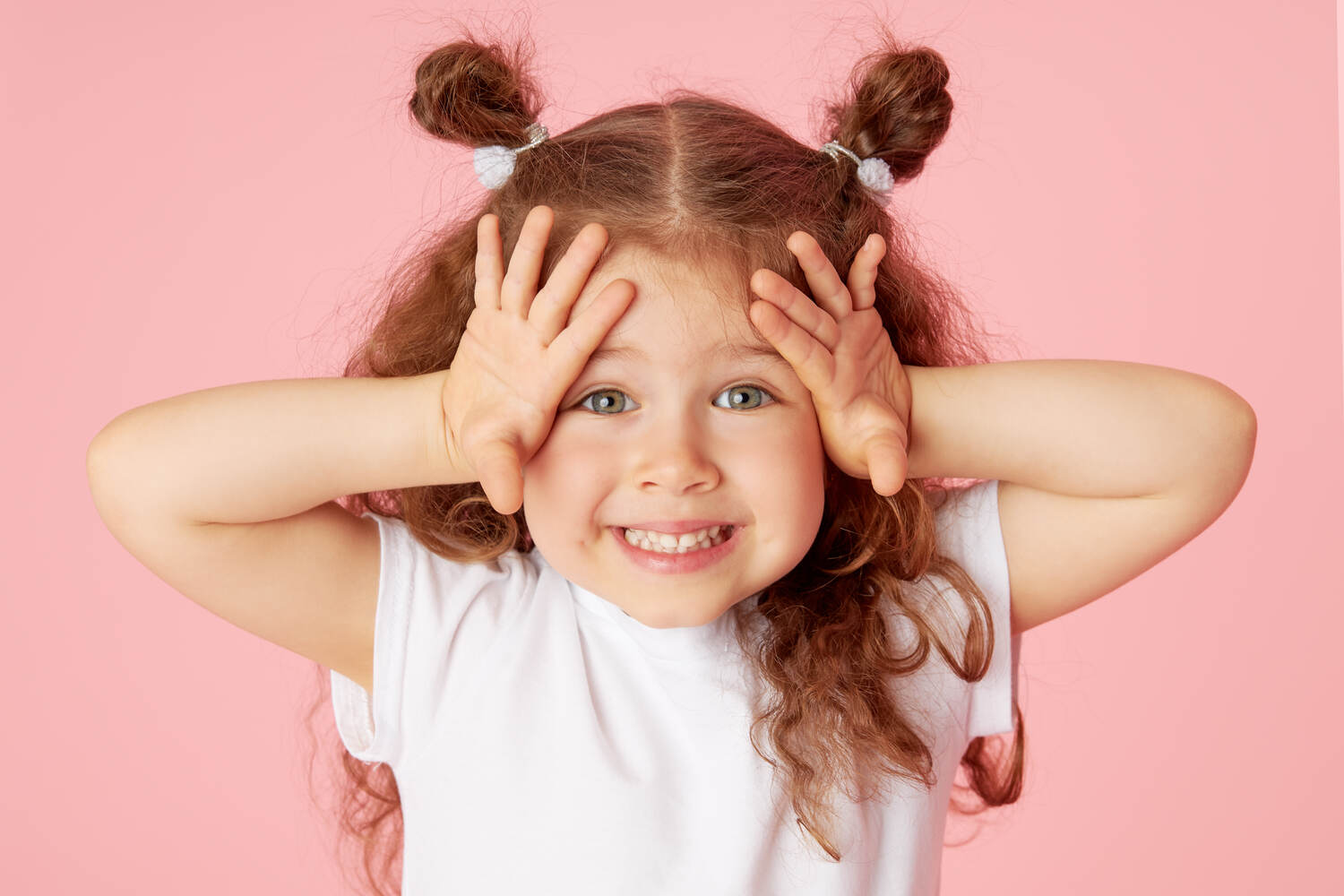
Toddler milestones are important in the development of a toddler. They need to learn and meet those milestones to grow. While sometimes it is perfectly okay for a toddler to learn a skill or do something much later than other toddlers, not meeting that milestone at all can indicate issues. As your toddler attains their toddler milestones, it is a reassurance that your little one is growing and developing beautifully.
How many toddler milestones has your 22-month-old crossed? Is your toddler developing both physically and cognitively, as per expectation? You can answer that only if you are aware of the various toddler milestones 22-month-olds attain. Well, read on to find out what the toddler milestones are and also how you can help your toddler achieve them soon.
In This Article
- Developmental Milestones For 22-Month-Old Toddlers
- Growth Chart For a 22-Month-Old Toddler
- Tips to Boost Your 22-Month-Old’s Development
- Health And Care of Your Toddler
- What Your Toddler’s Typical Day Looks Like?
- Some Useful Tips For Your Toddler
- FAQ’s
Developmental Milestones For 22-Month-Old Toddlers

Here are some developmental toddler milestones your 22-month-old can achieve this month-
Motor Skills Development
- Your toddler is bigger and stronger now
- Many of them can kick a ball without losing balance or tripping
- Your toddler can also run around faster than before
- Some may get adventurous and try walking backward. It is just the joy of exploring their physical limits
- Some toddlers can also stand on their tippy toes and try to grab items out of reach
Emotional Development
- The tantrums are more frequent and even louder now. Your toddler will try to test the limits of their vocal cords and scream or cry at the top of their voice when upset
- If you give preference to your other child or other toddlers playing with your little one, they can feel rejected and insecure
- They can understand when you are upset with them for doing something wrong
Exploring Body Parts
- Many toddlers will be touching themselves and exploring their private parts
- It is advisable to be gentle in disapproving of the behavior rather than shouting or scolding
- They are just naturally curious and their body parts are easily accessible
Teething
- Your toddler’s second molars may start coming in soon, if they are yet to erupt
- Both the upper and lower second molars will start growing, leading to some pain and discomfort in your toddler
- They may refuse to chew anything hard
Communication
- Most toddlers at this age can follow simple instructions like “Bring that toy to me”, “Give me the ball”, and “Sit down on your chair”
- They can understand what you are saying, correlate it with the item by identifying it correctly, remember the instruction, and execute it without any extra prompting
Repeating Words And Phrases
- Your toddler is paying a lot of attention to what you are saying and doing. They will repeat the words you use when you least expect it
- They will not mimic or repeat as soon as you say the words but will remember the words and use them at a different time, catching you completely off-guard
- Be careful about the words you use in front of them or expose them to, through TV or other screens
Screen Time Dependence
- If you have been giving them screen time, you will notice their demands are going up
- They will throw a fit when you turn off the screen. Some will demand the gadget the minute they step out or if it is mealtime (whenever they are used to having screen time)
- Some toddlers can have huge meltdowns when you don’t give or take away their screens from them
Growth Chart For a 22-Month-Old Toddler
An average 22-month-old height and weight will be as follows-
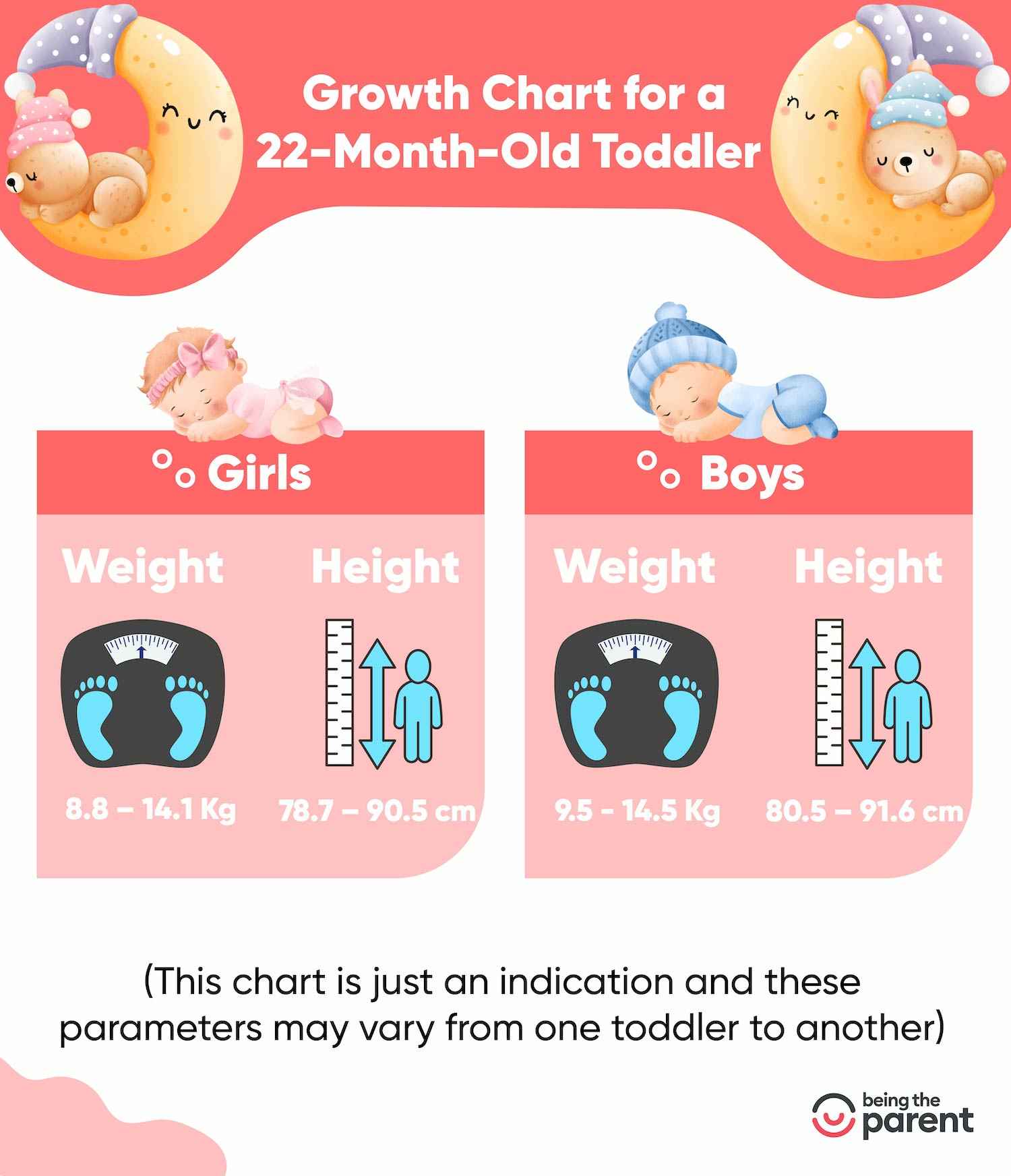
Tips to Boost Your 22-Month-Old’s Development
Here are some tips for parents to aid their 22-month-old’s development in attaining their toddler milestones-
1. Footwear
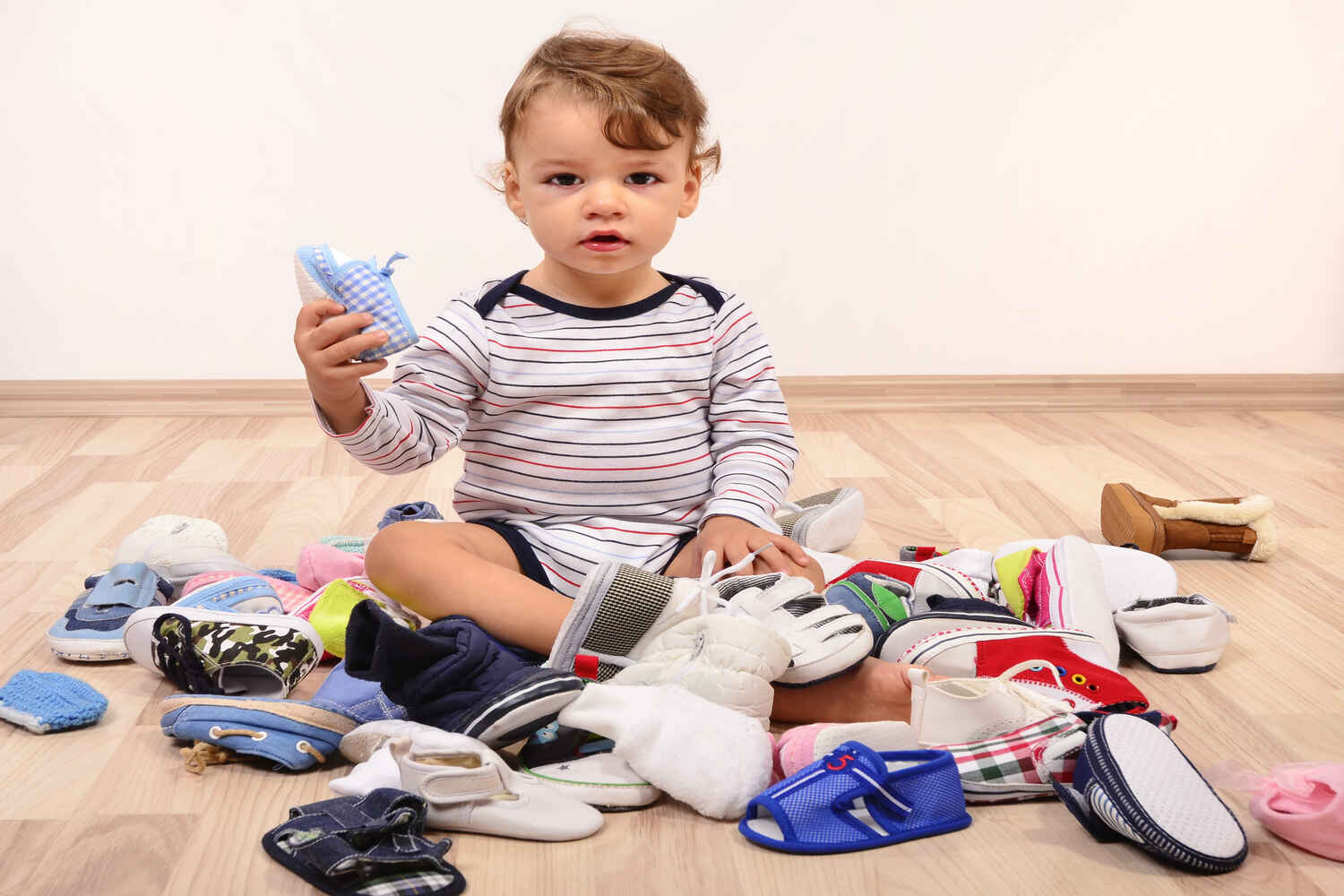
Your toddler will move more and even run around without control. Buying them footwear that can offer adequate support. It will also prevent falls, joint pains, or wrong footing. The wrong footwear can change the way your toddler walks (1).
2. Teach Safety
As your toddler moves around the house on their feet, it is time to teach them how to be safe. Make them understand what items or spaces are off-limits at home, to avoid unnecessary accidents.
3. Physical Activity

Encourage your toddler to step out and try different activities. Physical activities like playing ball, dancing, or just running around can help them stay active.
4. Handle Emotions
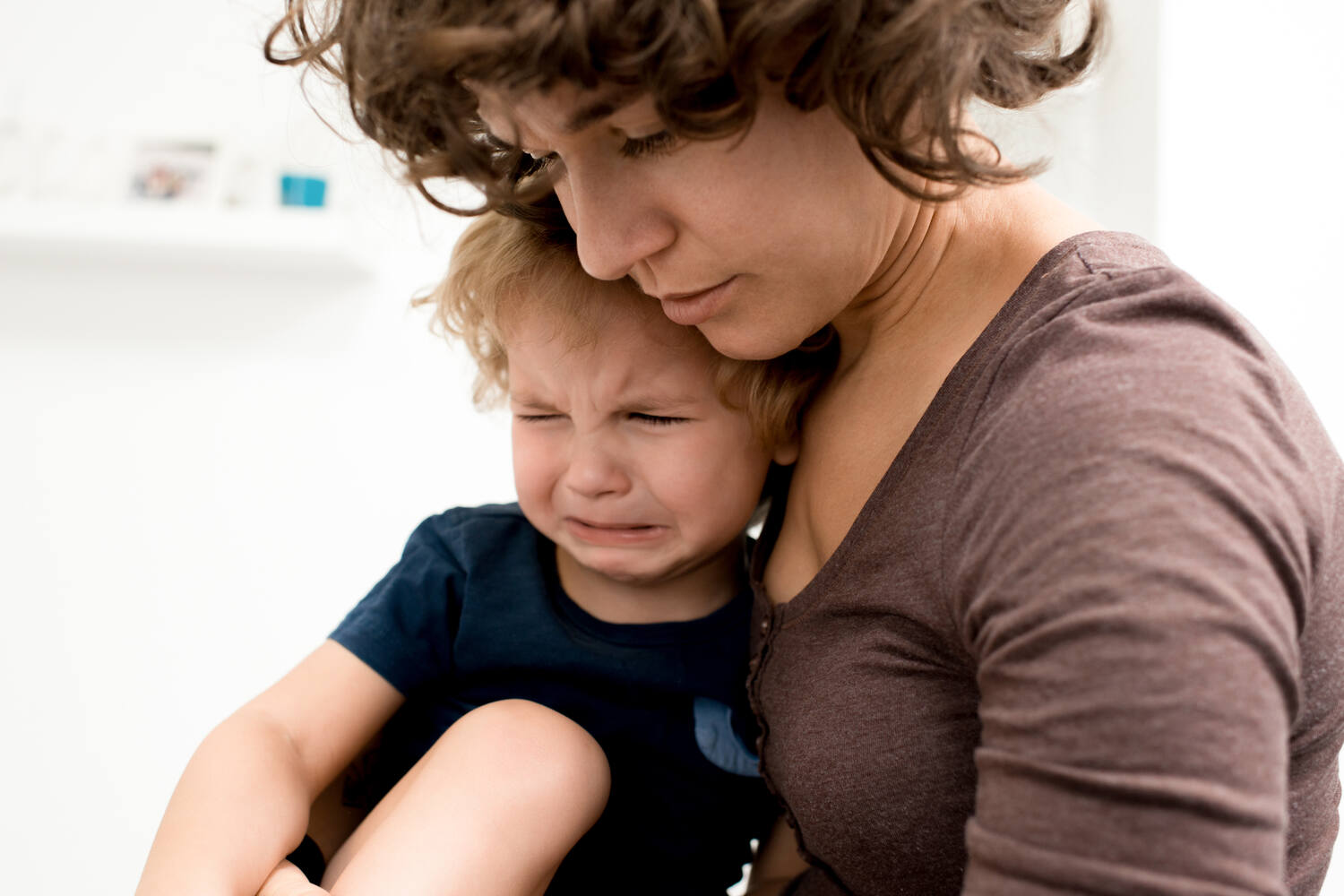
In many cases, the toddler’s tantrums can be very triggering and lead to the parent stressing out. Rather than losing your temper and shouting at your toddler, practice techniques to help you calm down. A calm parent is a perfect example for a toddler.
5. Cheer Their Efforts
Every time your toddler does something right like throwing the paper in the dustbin or putting away a toy, cheer them on and appreciate their behavior. This positive reinforcement will help form good habits.
Health And Care of Your Toddler
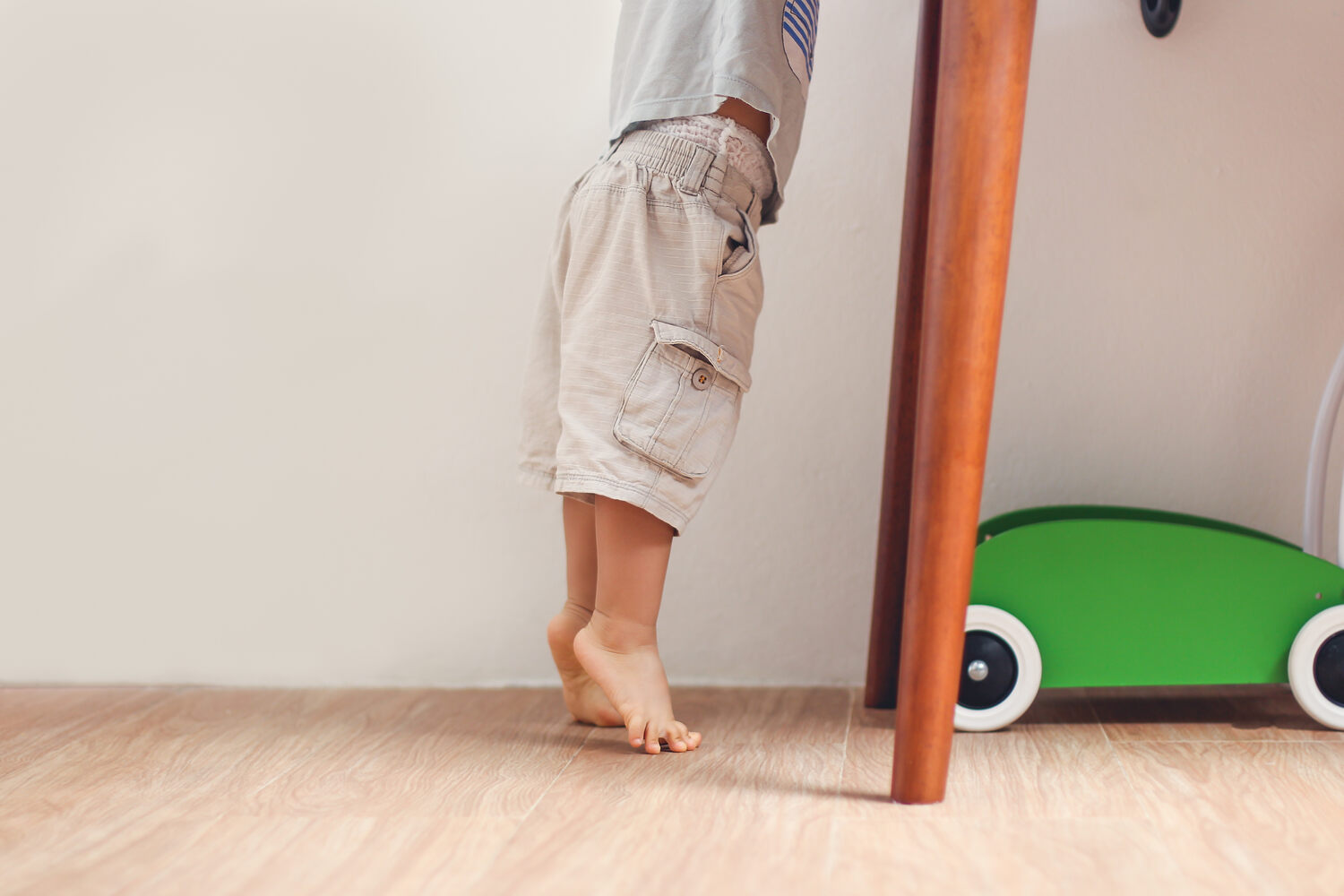
Here are some ways to effectively take care of your growing toddler’s health-
- As your toddler explores their surroundings, bug bites or spider bites are common. Ensure they play in a clean and safe spot
- Don’t let your toddler eat too many sweets. The sugar can get addictive and also damage their teeth
- If your toddler is suffering from constipation or indigestion, give them a lot of fluids and follow simple home remedies. If they are in pain, consult your doctor immediately
- Your toddler will try going on their tippy toes or even climb small stools to reach something above their heads. Keep things out of their reach to ensure they don’t pull it down on themselves
What Your Toddler’s Typical Day Looks Like?
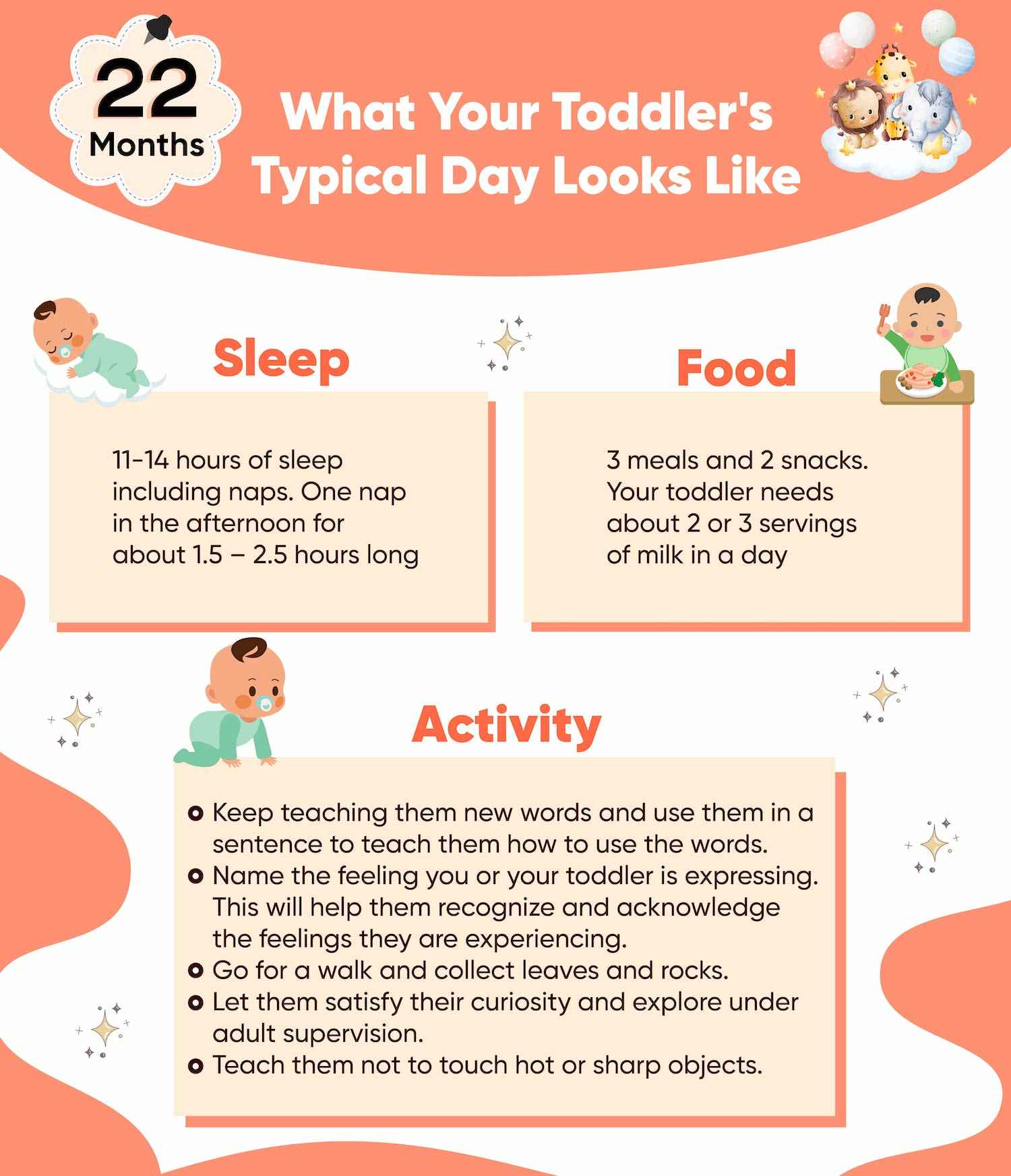
Some Useful Tips For Your Toddler

Want to support your toddler in achieving their toddler milestones? Try these tips-
- If your toddler insists on being carried, make walking fun. Come up with games to occupy your toddler when you are walking
- Insist on eating only at the table. Let your toddler know mealtimes are at the table and not in front of the screen or other parts of the house
- Talk calmly and try explaining rather than just punishing the toddler for doing something wrong
- Let them learn through play. Give them interactive books, toys that light up when they sort or match correctly, simple jigsaw or matching puzzles, etc. Learning through play is very impactful and effective in the long run (2)
- Your toddler’s birthday is coming up. It’s time to start planning for it. If you plan to have a party, you should start thinking about themes, scouting venues and talking to bakers
- You can also start searching for clothes for your toddler’s birthday. Remember to pick clothes that only suit the theme and location but also the weather and how physically active your little one is. A long princess frock might look very cute but if your toddler loves to climb or hide under tables and run around, such long dresses may not be a great option for the whole party
At 22 months, most toddlers are very active, speak freely, and don’t understand boundaries. They are bound to explore, cross limits, and even hurt themselves. Rather than restricting them in the name of safety, find ways to let them explore in a safe environment. You can effectively fuel their journey to attain their toddler milestones.
FAQ’s
1. What Should my 22-Month-Old be Able to do?
A 22-month-old toddler should be able to move freely with confidence, speak more clearly, use more words than before, and show interest in building or fixing toys. They should be able to build towers with blocks and knock them down.
2. What Are The Social Skills of a 22-Month-Old?
Some toddlers who are not shy might say hi or a bye when they see someone. They might answer simple questions and interact even with strangers. They will now listen to your instructions, and share or cooperate with you most times.
3. What is The Emotional Development of a 22-Month-Old?
A 22-month-old toddler can get angry very easily, especially when they feel helpless or out of control. Not getting what they want, hearing a no, or not getting their way can all spark a tantrum. If they see you upset, they will understand it is a negative emotion but may not know what to do about it yet. When happy, they might give you a high-five or a hug.
4. Why is my 22-Month-Old Not Talking?
If your 22-month-old is not talking, it can indicate a speech or developmental delay. Seek professional help to get the right diagnosis and guidance. A toddler not talking can be due to various reasons. Slurred speech or inability to say words and struggling to move their mouths the right way to pronounce the words can indicate other issues. Your pediatrician or a speech therapist can guide you properly.
References
- Understanding the Role of Children’s Footwear on Children’s Feet and Gait Development: A Systematic Scoping Review – [https://www.ncbi.nlm.nih.gov/pmc/articles/PMC10218108/]
- Learning through play: a review of the evidence – [https://akcesedukacja.pl/images/dokumenty-pdf/Insight_and_Research/LEGO-Foundation—Learning-through-play—review-of-evidence-2017.pdf]
